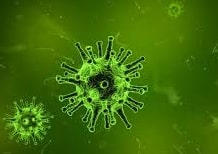The first thing we are going to do before entering fully into the meaning of the term infectology that concerns us now is to know its etymological origin. In this case, we can say that it emanates from Latin and Greek since it is the result of the union of two well-defined words that derive from those languages:
-The Latin noun "infection", which derives from "infectio" and is formed from the sum of the following lexical components: the prefix "in-", which means "not" or "without"; the verb "facere", which is synonymous with "do", and the suffix "-tio", which is used to indicate "action and affection".
-The Greek element "logia", which can be translated as "science" or "treaty" and which is the result of the sum of the noun "logos", which is synonymous with "word", and the suffix "-ia", which It is used to indicate "quality."
The dictionary of the Royal Spanish Academy ( RAE ) does not include the term infectology . The concept, in any case, is frequently used in the field of medicine .
 It is a medical specialty focused on diseases caused by parasites, fungi, viruses and bacteria: that is, by infectious agents . Infectious disease is responsible for treating, diagnosing, preventing and analyzing these pathological processes.
It is a medical specialty focused on diseases caused by parasites, fungi, viruses and bacteria: that is, by infectious agents . Infectious disease is responsible for treating, diagnosing, preventing and analyzing these pathological processes.
The infectious disease expert is called an infectologist . This is a professional of great importance for public health since infectious diseases cause a large number of deaths worldwide.
However, the development of chemical agents and antimicrobial drugs and prevention campaigns aimed at fighting infectious agents caused these diseases to lose their prevalence as a cause of mortality. Infectious disease, of course, was vital in this advance .
Revolving around the infections that people suffer from, infectious disease maintains a close link with many clinical and even surgical specialties . It is important to keep in mind that, in addition to infections that can be contracted in any community setting, hospital-acquired infections are also common.
Most hospitals have an infectious disease area or service. This sector has a team of infectious disease specialists who are responsible for carrying out their specific work.
Chickenpox , sexually transmitted diseases , leptospirosis , dengue and flu are just some of the disorders that infectious disease deals with. As can be seen, there are diseases of varying severity that require the specialized knowledge of infectious disease specialists.
Tuberculosis, malaria or even AIDS are also diseases that are studied and treated by infectious diseases, whose professionals are in charge of carrying out important tasks such as taking samples, studying cultures or even different activities in the laboratory that, among other things, will be very useful to identify, for example, different microorganisms.
Likewise, other pathologies that become the object of study by infectious disease specialists are hepatitis, meningitis, respiratory infections, diseases whose cause leads to confusion and that present with fever for a long time...
